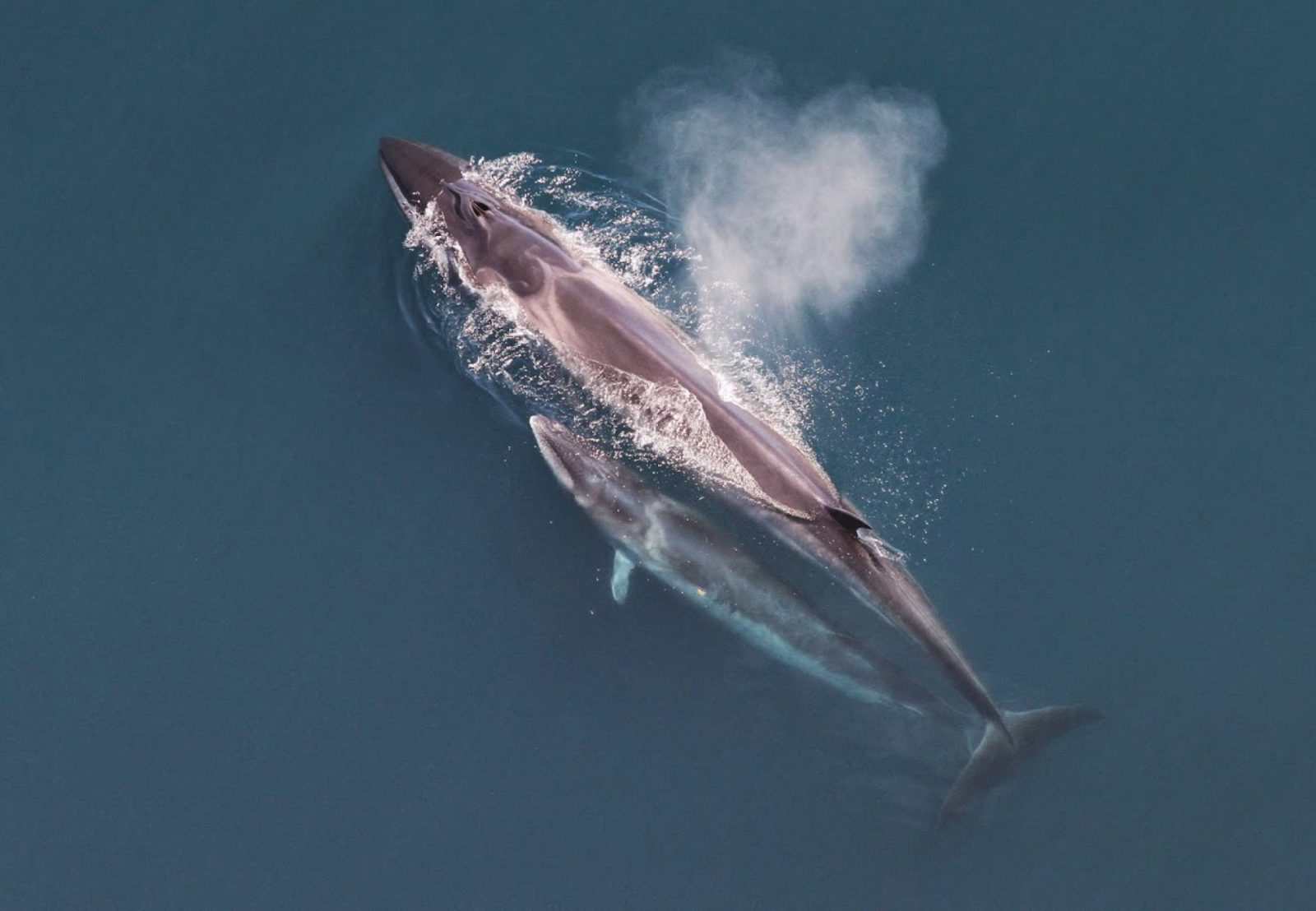
Sei Whale
The third largest after the blue and the fin whale, it is found in most of the worlds deep oceans, though it avoids the tropics and the polar regions. It can reach lengths of 19.5m and weights of 28 tonnes, it is capable of consuming 900kg of food in a day.
It can reach speeds of over 30 mph (50kmh) over short distances making it one of the fastest whales. During commercial whaling, around 250,000 were taken, and the population fell to between 7000 and 13,000. This has thankfully recovered to 80,000 but is clearly still not near its pre-whaling numbers.
Sei is the Norweigen word for the Pollark fish which appears off the coast at the same time of year, to feast on the plankton which is abundant at that time of year.
They generally migrate away from the poles to spend the winters in warmer waters.
Mass stranding events (over 300 dying at a time on occasion) happen from time to time, and while we are not sure what causes this, we think it is likely some sort of poisoning of their waters – such as a red tide.











